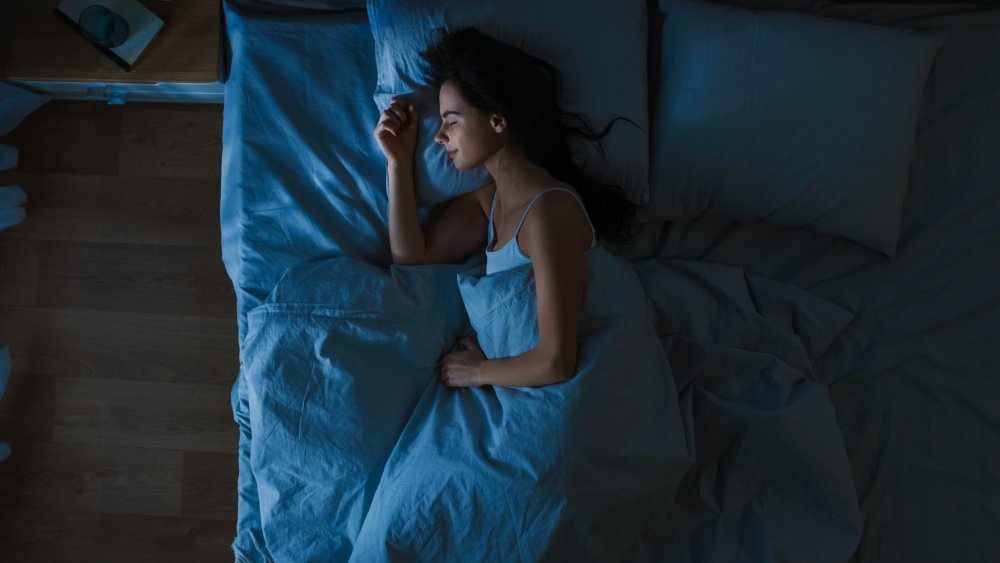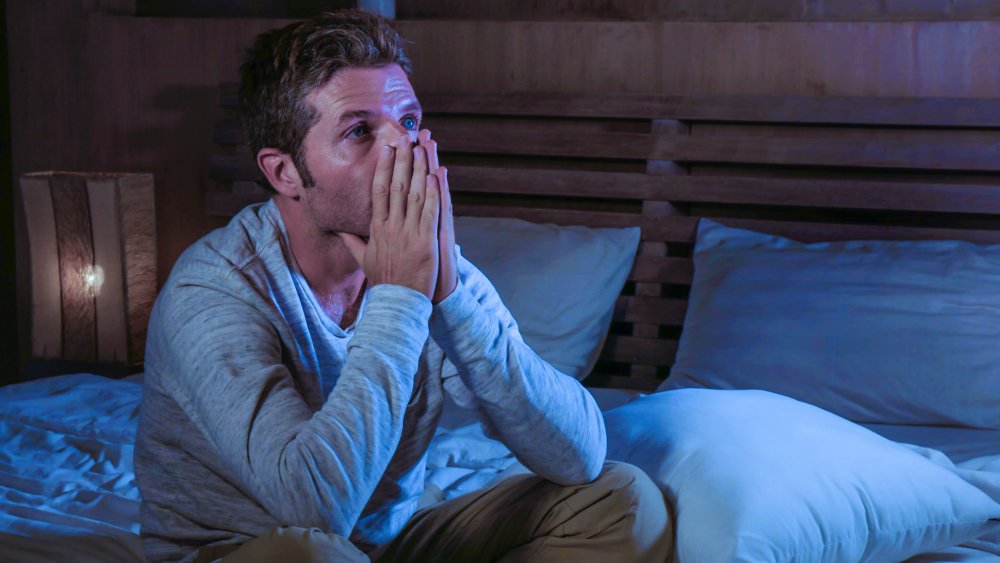Your Dreams Are More Vivid These Days. Here's Why
Odds are you're experiencing more dreams, and more vivid dreams, these days. Not the dreams of "as soon as I get out of quarantine I'm going to..." No, the dreams that may or may not come during sleep cycles. Good, bad, indifferent. The usual — flying, or showing up late for an exam, or your therapist turns into your childhood dog that was run over by your drunk uncle. Those dreams.
You aren't the only one, according to Dr. Deirdre Leigh Barrett, dream researcher at Harvard Medical School. And there's probably more than one reason, she told the Boston Globe. Quarantine in the spring of 2020 has meant a huge life change for many, if not most, people throughout the world. That kind of drastic change can result in an uptick in vivid dreams.
Another probable cause is the simple fact that many people are actually starting to catch up on their sleep. Maybe they're working from home and don't have that pesky commute anymore. Nowhere to go for an evening's entertainment, so stay home with a good book and hit the sack early. "One of the biggest variables in number of dreams, vividness of dreams, length of recalled dreams, etc. is hours of sleep. Many who are sleep-deprived may be catching up on sleep now," she said. That's probably directly related to an increase in REM (Rapid Eye Movement) sleep for many people. That's when the dreaming occurs.
You aren't the only one
More sleep, more REM sleep, more dreams. Add to that the stress of daily life, whether that's change in work habits, loss of work, trying to balance work-at-home with homeschooling a child (or children), dining habits — it all adds up to pressures great and small, and dreaming can help us cope, according to Brittany LaMonda, a PhD and neuropsychologist at Lennox Hill Hospital in New York City. "We saw the same things after the 9/11 attacks, World War II, and other traumatic events that people faced throughout history," she told Shape. "We're being bombarded with apocalyptic images of frontline workers in head-to-toe personal protective equipment (PPE) carrying body bags, and with the news and changes in schedules and routines, it's really a perfect storm to have much more vivid and disturbing dreams and nightmares."
Dr. LaMonda also reminds us that those extra-vivid dreams aren't necessarily bad things. What's more important is that we get enough sleep each night, regardless of dream content — she recommends at least seven hours. If the dreams really are anxiety-producing, Dr. Barrett suggests a technique called "dream incubation" — a way to sort of "plant a seed" about the kinds of dreams you want to have. As How Stuff Works explains it, dream incubation is a way to help focus the brain on a specific issue before sleep. The story is told that Mary Wollstonecroft Shelley got the idea for her novel Frankenstein in a dream. So there's that, too.

